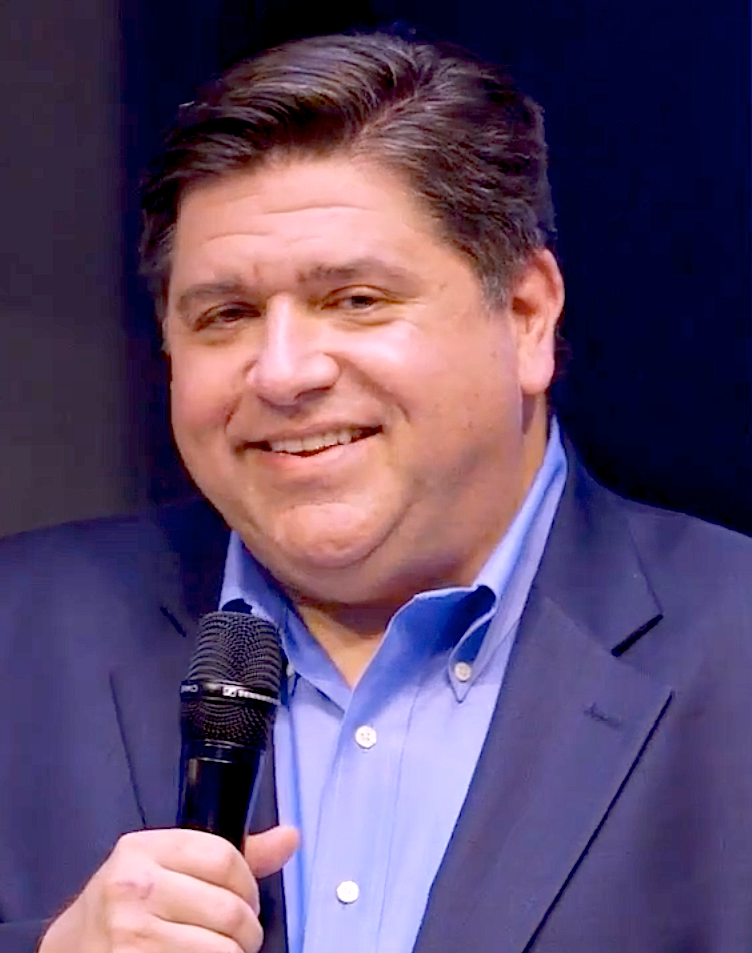Illinois Governor Agrees to Fund Scholarship Program He Once Opposed

In what seemed only month ago to be an unlikely conclusion, Illinois’ ambitious tax credit scholarship initiative has been preserved by someone who had been one of its most vocal critics, Governor JB Pritzker. The program has benefitted thousands of low income families throughout the state, and what seemed like its imminent demise was of particular concern to Chicago’s Orthodox community who have reaped tremendous benefits from the scholarships.
Rabbi Shlomo Soroka, Agudath Israel of Illinois’ director of government affairs, told Hamodia that the Governor’s about-face represents a major victory for the broad advocacy effort of which he was a part.
“It’s a very positive development,” he said. “Not only was scrapping this program one of the Governor’s campaign pledges, his budget proposal was a first step in doing that and despite a lot of pushback, he was not backing down. It took a lot of effort on our part and a lot of mobilizing grassroots advocacy, but it was saved, and the Governor certainly deserves a lot of credit for being open to learning about the benefits for children, despite his original position.”
Known as the “Invest in Kids” act, the scholarship program is one of the nation’s most generous and was a flagship achievement of former Governor Bruce Rauner. It allows citizens to contribute to scholarship granting organizations, with the option of earmarking their donation for a specific school or set of institutions, in return for a tax credit of 75 cents on the dollar. Donations are capped at a total of $100 million and is distributed by these organizations to eligible students. It was passed as a pilot program and is set to sunset in 2024.
Since its introduction, it has distributed over 7,000 scholarships of up to $13,000 to children living below or close to the poverty line. Over 700 of the recipients are students in Jewish schools and Rabbi Soroka said that the program has been a “game changer” for many institutions and families in the Orthodox community.
In keeping with his progressive orientation, during his campaign in 2018, Governor Pritzker pledged to do away with the program claiming it deflected funds from public education. In line with this promise, his budget proposal cut allowable donations down to $50 million with plans to phase it out in the next three years.
The proposed cuts set off a wave of protest and feverish efforts to save the scholarships, led by school choice advocates including the Agudah, the Catholic Conference, and an independent group known as Empower Illinois which has become the largest distributer of the funds. In addition to traditional lobbying, a massive grassroots effort was organized to demonstrate the breadth of the program’s effects as well as to publicize the positive impact it has had on recipients.
“People told their stories; inner city kids who were in a school where they were now succeeding, families who sacrificed to give their children a better education but could barely put food on the table and now can, these stories made a real difference,” said Rabbi Soroka.
In a meeting with a group of Chabad representatives shortly after the Poway shooting, Governor Pritzker explained that part of his opposition to the program was based in a belief that the same donations that were now going to the scholarship fund were previously being given directly to schools and as such the program had just become a tax shelter for the wealthy that was not really benefiting education.
The comment made its way to other supporters of the program who hurriedly organized data on donors in an effort to prove the theory wrong. Rabbi Soroka said that results showed just the opposite of what the scholarship’s opponents had claimed.
“Not only did our data show that donors were still giving what they used to schools and other charities, but taking into account this program, donations had increased by close to four times what they had been,” said Rabbi Soroka. “It also showed that while there certainly are rich people who contribute, that many of the contributions were relatively modest ones coming from lower and middle income families trying to help schools they care about.”
In addition to advocacy efforts, the Governor’s plans were opposed by leaders in the state legislature of both parties. While efforts to do away with the program were cheered by teachers unions and some Democrats in state government, the scholarship’s popularity especially among minority groups who have been the greatest beneficiaries mounted a significant challenge to his plans.
Last Friday a spokesman for the Governor announced that the scholarship program would indeed be preserved and fully funded in the 2020 budget and would continue as long as the state could ensure that public education would be fully funded. The spokesman expressed a commitment “to making sure that all students get the education they deserve.”
“We appreciate that public education needs to be the state’s priority and that it’s a public need that we all have a responsibility to support, but we have been trying to explain that this program is not about pitting one system against the other and we are very pleased to see the Governor’s statement,” said Rabbi Soroka. “After having real fears about the future of the scholarships, I can say that now we’re cautiously optimistic and can even start to switch from defense to offence and try to make some enhancements.”
To Read The Full Story
Are you already a subscriber?
Click "Sign In" to log in!

Become a Web Subscriber
Click “Subscribe” below to begin the process of becoming a new subscriber.

Become a Print + Web Subscriber
Click “Subscribe” below to begin the process of becoming a new subscriber.

Renew Print + Web Subscription
Click “Renew Subscription” below to begin the process of renewing your subscription.







